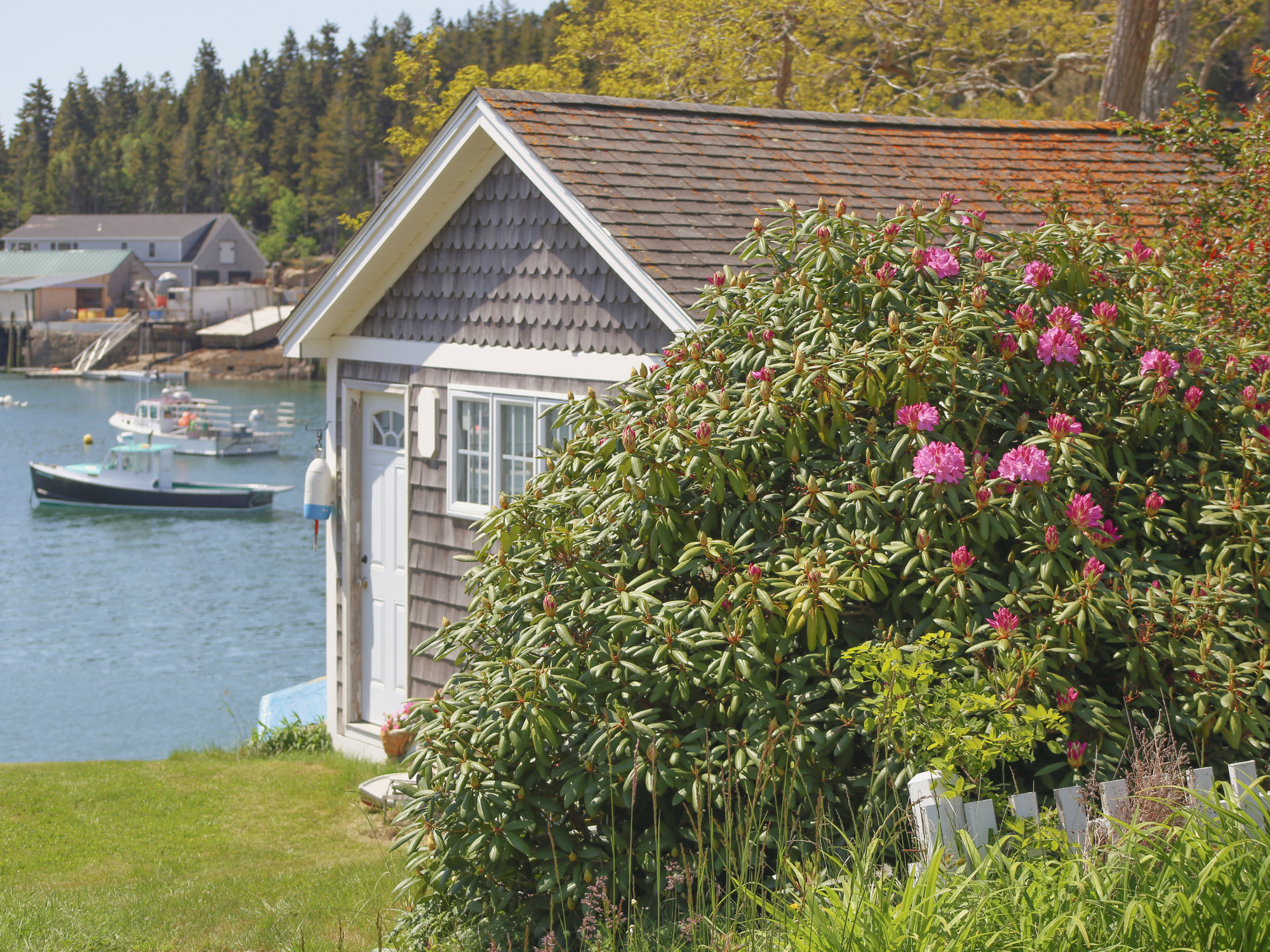My $1.2 Million Vacation Home Has a $360K Mortgage. I Don't Need My Upcoming $45K RMD. Should I Use It to Pay Down the Mortgage?
We asked wealth planners for advice.


Profit and prosper with the best of Kiplinger's advice on investing, taxes, retirement, personal finance and much more. Delivered daily. Enter your email in the box and click Sign Me Up.
You are now subscribed
Your newsletter sign-up was successful
Want to add more newsletters?

Delivered daily
Kiplinger Today
Profit and prosper with the best of Kiplinger's advice on investing, taxes, retirement, personal finance and much more delivered daily. Smart money moves start here.

Sent five days a week
Kiplinger A Step Ahead
Get practical help to make better financial decisions in your everyday life, from spending to savings on top deals.

Delivered daily
Kiplinger Closing Bell
Get today's biggest financial and investing headlines delivered to your inbox every day the U.S. stock market is open.

Sent twice a week
Kiplinger Adviser Intel
Financial pros across the country share best practices and fresh tactics to preserve and grow your wealth.

Delivered weekly
Kiplinger Tax Tips
Trim your federal and state tax bills with practical tax-planning and tax-cutting strategies.

Sent twice a week
Kiplinger Retirement Tips
Your twice-a-week guide to planning and enjoying a financially secure and richly rewarding retirement

Sent bimonthly.
Kiplinger Adviser Angle
Insights for advisers, wealth managers and other financial professionals.

Sent twice a week
Kiplinger Investing Weekly
Your twice-a-week roundup of promising stocks, funds, companies and industries you should consider, ones you should avoid, and why.

Sent weekly for six weeks
Kiplinger Invest for Retirement
Your step-by-step six-part series on how to invest for retirement, from devising a successful strategy to exactly which investments to choose.
Question: My $1.2 million vacation home has a $360K mortgage. I don't need my upcoming $45,000 RMD. Should I use it to pay down the mortgage?
Answer: There can be benefits to carrying a mortgage rather than paying it off with a lump sum of cash. For one thing, if you itemize on your tax returns, you may be able to lower your IRS bill via the mortgage interest deduction. And if you have a relatively low interest rate on your mortgage, it could pay to invest your money elsewhere at a higher return.
On the other hand, at the end of the day, a mortgage is a form of debt. And you may not love having debt in retirement.
From just $107.88 $24.99 for Kiplinger Personal Finance
Become a smarter, better informed investor. Subscribe from just $107.88 $24.99, plus get up to 4 Special Issues

Sign up for Kiplinger’s Free Newsletters
Profit and prosper with the best of expert advice on investing, taxes, retirement, personal finance and more - straight to your e-mail.
Profit and prosper with the best of expert advice - straight to your e-mail.
If you have a $360,000 mortgage on a vacation home worth $1.2 million, you clearly have plenty of equity in that property. But you may be tired of having to make monthly payments on that loan.
If you’re on the hook for a $45,000 required minimum distribution (RMD) you don’t need for other expenses, you may be inclined to use it to pay down your mortgage and shed that loan more quickly. But is that a good idea?

It’s a matter of liquidity
The amount of interest you’re paying on your mortgage might help dictate whether it makes sense to use an RMD to pay off that loan sooner. But regardless of your mortgage’s interest rate, as long as it’s not astronomical, you’ll want to consider how putting more money into your home will impact your overall liquidity.
“When I walk clients through decisions like this, we look at which option leaves them better positioned for the unknown,” says Drew Lunt, founder and adviser at Scratch Capital. “Investing the after-tax RMD or using it for QCDs can preserve liquidity and allow total-return compounding to do the heavy lifting.”
Matt Hylland, financial planner at Arnold and Mote Wealth Management, agrees.
“Using an unneeded RMD for proceeds to accelerate the paydown of the mortgage can be a great way to guarantee some interest savings in the long run,” he says.
But first, he says, you must make sure you have enough liquid assets and savings as a buffer.
As Hylland explains, “Building up additional equity in a home can pay off eventually, but it will be expensive to access that equity if it is needed before selling the home.” This especially holds true in today’s borrowing environment, where interest rates remain stubbornly high.
Hylland suggests evaluating the interest rate on other safe investments, like money markets and Treasury bills, to see how it compares to your mortgage rate. If you could earn a comparable interest rate outside of paying down the mortgage, the benefit of greater liquidity may ultimately be a better option.
As Lunt cautions, “A vacation home is already an illiquid, concentrated asset. Adding more equity may feel productive, but it can reduce resilience when unexpected repairs, rising insurance costs, or life changes inevitably show up.”

There are other ways to maximize an RMD
If you don't need your upcoming RMD for living expenses but you're not sure you want to tie another $45,000 up in a vacation home, there are other ways to use that money productively.
Lunt suggests looking at qualified charitable distributions (QCDs) if you're eager to reduce your tax burden. You can also invest your RMD in a taxable brokerage account that can generate income.
Another option, says Hylland, is to use the RMD to pay the tax bill on a Roth conversion that reduces or eliminates future RMDs.
"This strategy will help reduce future year RMDs, potentially saving taxes for the rest of their life, and give this person additional money that will grow tax-free in a Roth IRA, which may ultimately be much more valuable than saving some interest on their mortgage," he explains.
Think about what gives you the most peace of mind
Money you don't need for pressing expenses in retirement can be used to serve another key goal — improving your sense of financial security. That's why you may want to base your decision on what gives you the most peace of mind, provided you've done a personal liquidity analysis first (either on your own or with the help of a financial adviser).
As Lunt says, "Paying down the loan can legitimately reduce financial stress and create more stability."
However, if putting more money into an illiquid asset will introduce more financial fragility over time, then it may not be worth it. You'll need to think about what's best for you in a broad sense — not just in the context of dealing with this year's RMD.
"The right choice here isn’t about maximizing short-term math," Lunt says. "It’s about increasing long-term optionality and making sure [you] can adapt when life doesn’t follow the plan."
Read More
Profit and prosper with the best of Kiplinger's advice on investing, taxes, retirement, personal finance and much more. Delivered daily. Enter your email in the box and click Sign Me Up.

Maurie Backman is a freelance contributor to Kiplinger. She has over a decade of experience writing about financial topics, including retirement, investing, Social Security, and real estate. She has written for USA Today, U.S. News & World Report, and Bankrate. She studied creative writing and finance at Binghamton University and merged the two disciplines to help empower consumers to make smart financial planning decisions.
-
 Quiz: Do You Know How to Avoid the "Medigap Trap?"
Quiz: Do You Know How to Avoid the "Medigap Trap?"Quiz Test your basic knowledge of the "Medigap Trap" in our quick quiz.
-
 5 Top Tax-Efficient Mutual Funds for Smarter Investing
5 Top Tax-Efficient Mutual Funds for Smarter InvestingMutual funds are many things, but "tax-friendly" usually isn't one of them. These are the exceptions.
-
 AI Sparks Existential Crisis for Software Stocks
AI Sparks Existential Crisis for Software StocksThe Kiplinger Letter Fears that SaaS subscription software could be rendered obsolete by artificial intelligence make investors jittery.
-
 Quiz: Do You Know How to Avoid the 'Medigap Trap?'
Quiz: Do You Know How to Avoid the 'Medigap Trap?'Quiz Test your basic knowledge of the "Medigap Trap" in our quick quiz.
-
 We Retired at 62 With $6.1 Million. My Wife Wants to Make Large Donations, but I Want to Travel and Buy a Lake House.
We Retired at 62 With $6.1 Million. My Wife Wants to Make Large Donations, but I Want to Travel and Buy a Lake House.We are 62 and finally retired after decades of hard work. I see the lakehouse as an investment in our happiness.
-
 Social Security Break-Even Math Is Helpful, But Don't Let It Dictate When You'll File
Social Security Break-Even Math Is Helpful, But Don't Let It Dictate When You'll FileYour Social Security break-even age tells you how long you'd need to live for delaying to pay off, but shouldn't be the sole basis for deciding when to claim.
-
 I'm an Opportunity Zone Pro: This Is How to Deliver Roth-Like Tax-Free Growth (Without Contribution Limits)
I'm an Opportunity Zone Pro: This Is How to Deliver Roth-Like Tax-Free Growth (Without Contribution Limits)Investors who combine Roth IRAs, the gold standard of tax-free savings, with qualified opportunity funds could enjoy decades of tax-free growth.
-
 I'm a Wealth Adviser Obsessed With Mahjong: Here Are 8 Ways It Can Teach Us How to Manage Our Money
I'm a Wealth Adviser Obsessed With Mahjong: Here Are 8 Ways It Can Teach Us How to Manage Our MoneyThis increasingly popular Chinese game can teach us not only how to help manage our money but also how important it is to connect with other people.
-
 Global Uncertainty Has Investors Running Scared: This Is How Advisers Can Reassure Them
Global Uncertainty Has Investors Running Scared: This Is How Advisers Can Reassure ThemHow can advisers reassure clients nervous about their plans in an increasingly complex and rapidly changing world? This conversational framework provides the key.
-
 5 Ronald Reagan Quotes Retirees Should Live By
5 Ronald Reagan Quotes Retirees Should Live ByThe Nation's 40th President's wit and wisdom can help retirees navigate their financial and personal journey with confidence.
-
 I'm a Real Estate Investing Pro: This Is How to Use 1031 Exchanges to Scale Up Your Real Estate Empire
I'm a Real Estate Investing Pro: This Is How to Use 1031 Exchanges to Scale Up Your Real Estate EmpireSmall rental properties can be excellent investments, but you can use 1031 exchanges to transition to commercial real estate for bigger wealth-building.